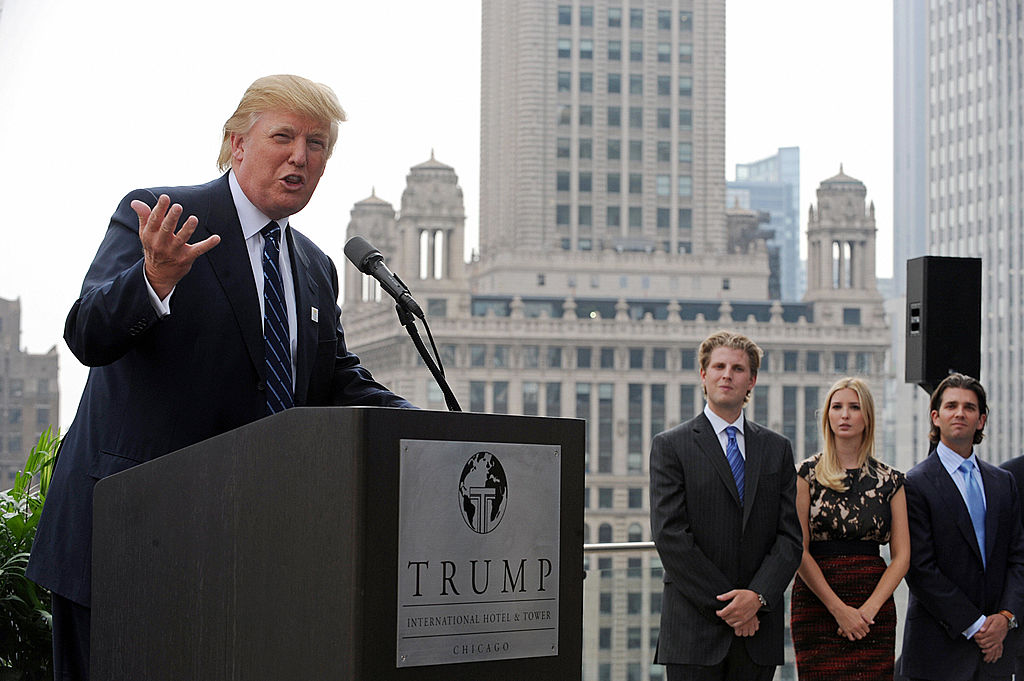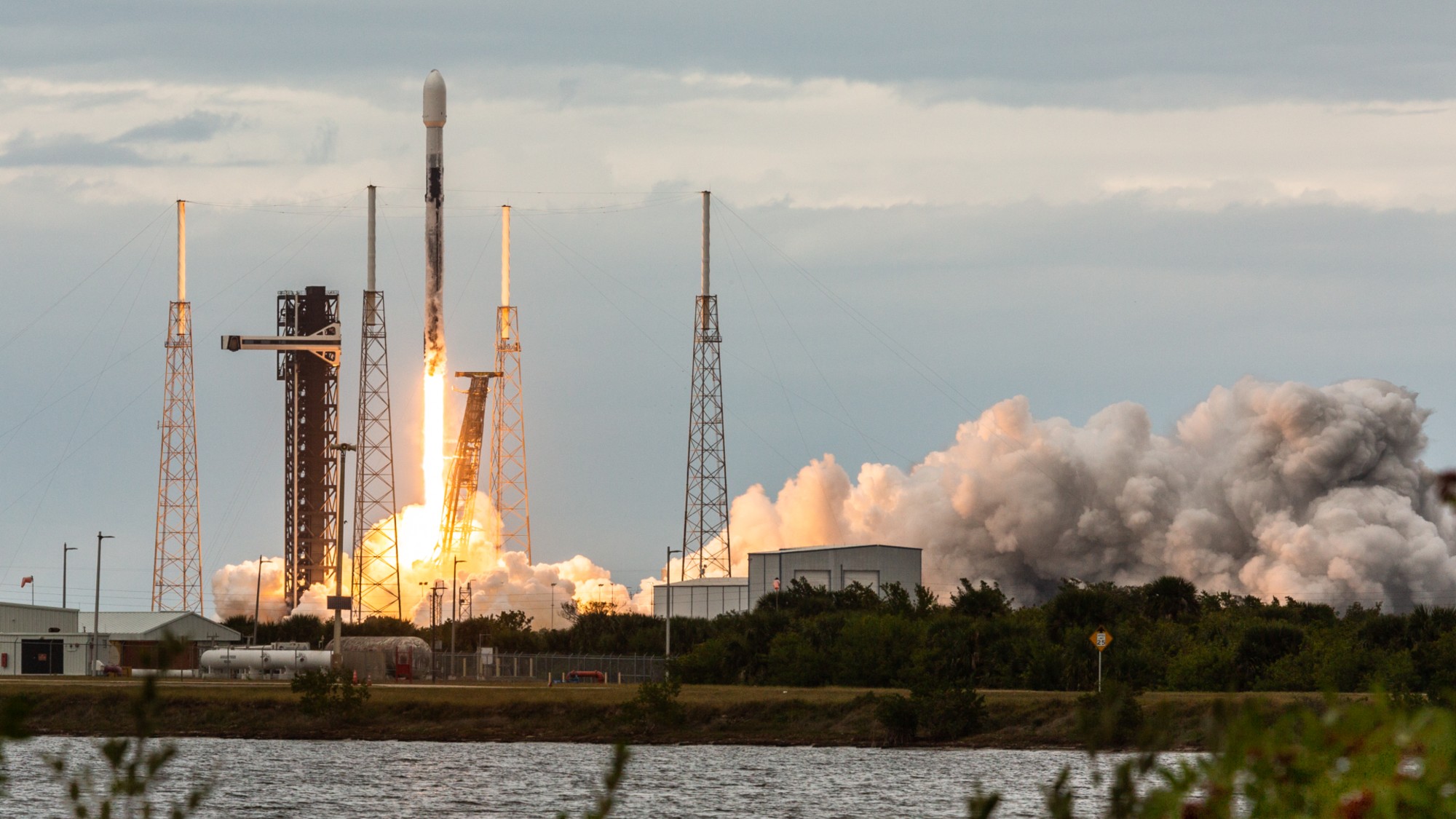If Donald Trump becomes president, what would happen to his business empire?


The Clinton Foundation is developing a plan to insulate Hillary Clinton from potential conflicts of interest if she is elected president: Bill Clinton will stop fundraising and leave the board of directors, though Chelsea Clinton may stay on, and the main foundation will stop accepting corporate and foreign donations but the global Clinton Health Access Initiative may not. But what would happen to Donald Trump's sprawling business empire if he's elected? It's not clear.
If his assessment of his wealth is accurate, Trump would be the wealthiest person elected president, and his holdings include skyscrapers, hotels, golf courses, a winery, a clothing line, and other ventures, many of them abroad, most of them tied to the Trump brand. In a debate in January, Trump said to avoid (unusually large) potential conflicts of interest he would put all of his assets in a blind trust (probably) and leave management of his business to his children, but on NBC News on Wednesday night, lawyer and presidential financial disclosure expert Ken Gross said that "to set up a blind trust in the U.S. executive branch is actually quite difficult, and your children can't run it as a legal matter."
In the New York Times article the NBC report featured, Susanne Craig shows that Trump's various companies hold at least $650 million in debt in the U.S., often in complex partnerships with lenders including the Bank of China and Goldman Sachs. The Trump Organization's CFO said that Trump was personally liable for only a "small percentage of the corporate debt" Trump listed on his financial disclosure filing. But he has a clear financial interest in those loans, and his "opaque portfolio of business ties makes him potentially vulnerable to the demands of banks, and to business people in the United States and abroad," Craig writes, citing Richard Painter, George W. Bush's White House ethics lawyer.
The Week
Escape your echo chamber. Get the facts behind the news, plus analysis from multiple perspectives.

Sign up for The Week's Free Newsletters
From our morning news briefing to a weekly Good News Newsletter, get the best of The Week delivered directly to your inbox.
From our morning news briefing to a weekly Good News Newsletter, get the best of The Week delivered directly to your inbox.
"The success of his empire depends on an ability to get credit, to get loans extended to his business entities," Painter told The New York Times. "And we simply don't know a lot about his financial dealings, here or around the world." Legally, Trump would not have to sell off any of his business holdings or shield himself from their management if he becomes president. So as with many of his plans for the White House, what happens to his business empire has a distinct patina of "trust me."
A free daily email with the biggest news stories of the day – and the best features from TheWeek.com
Peter has worked as a news and culture writer and editor at The Week since the site's launch in 2008. He covers politics, world affairs, religion and cultural currents. His journalism career began as a copy editor at a financial newswire and has included editorial positions at The New York Times Magazine, Facts on File, and Oregon State University.
-
 A running list of the US government figures Donald Trump has pardoned
A running list of the US government figures Donald Trump has pardonedin depth Clearing the slate for his favorite elected officials
-
 Ski town strikers fight rising cost of living
Ski town strikers fight rising cost of livingThe Explainer Telluride is the latest ski resort experiencing an instructor strike
-
 ‘Space is one of the few areas of bipartisan agreement in Washington’
‘Space is one of the few areas of bipartisan agreement in Washington’Instant Opinion Opinion, comment and editorials of the day
-
 TikTok secures deal to remain in US
TikTok secures deal to remain in USSpeed Read ByteDance will form a US version of the popular video-sharing platform
-
 Unemployment rate ticks up amid fall job losses
Unemployment rate ticks up amid fall job lossesSpeed Read Data released by the Commerce Department indicates ‘one of the weakest American labor markets in years’
-
 US mints final penny after 232-year run
US mints final penny after 232-year runSpeed Read Production of the one-cent coin has ended
-
 Warner Bros. explores sale amid Paramount bids
Warner Bros. explores sale amid Paramount bidsSpeed Read The media giant, home to HBO and DC Studios, has received interest from multiple buying parties
-
 Gold tops $4K per ounce, signaling financial unease
Gold tops $4K per ounce, signaling financial uneaseSpeed Read Investors are worried about President Donald Trump’s trade war
-
 Electronic Arts to go private in record $55B deal
Electronic Arts to go private in record $55B dealspeed read The video game giant is behind ‘The Sims’ and ‘Madden NFL’
-
 New York court tosses Trump's $500M fraud fine
New York court tosses Trump's $500M fraud fineSpeed Read A divided appeals court threw out a hefty penalty against President Trump for fraudulently inflating his wealth
-
 Trump said to seek government stake in Intel
Trump said to seek government stake in IntelSpeed Read The president and Intel CEO Lip-Bu Tan reportedly discussed the proposal at a recent meeting
